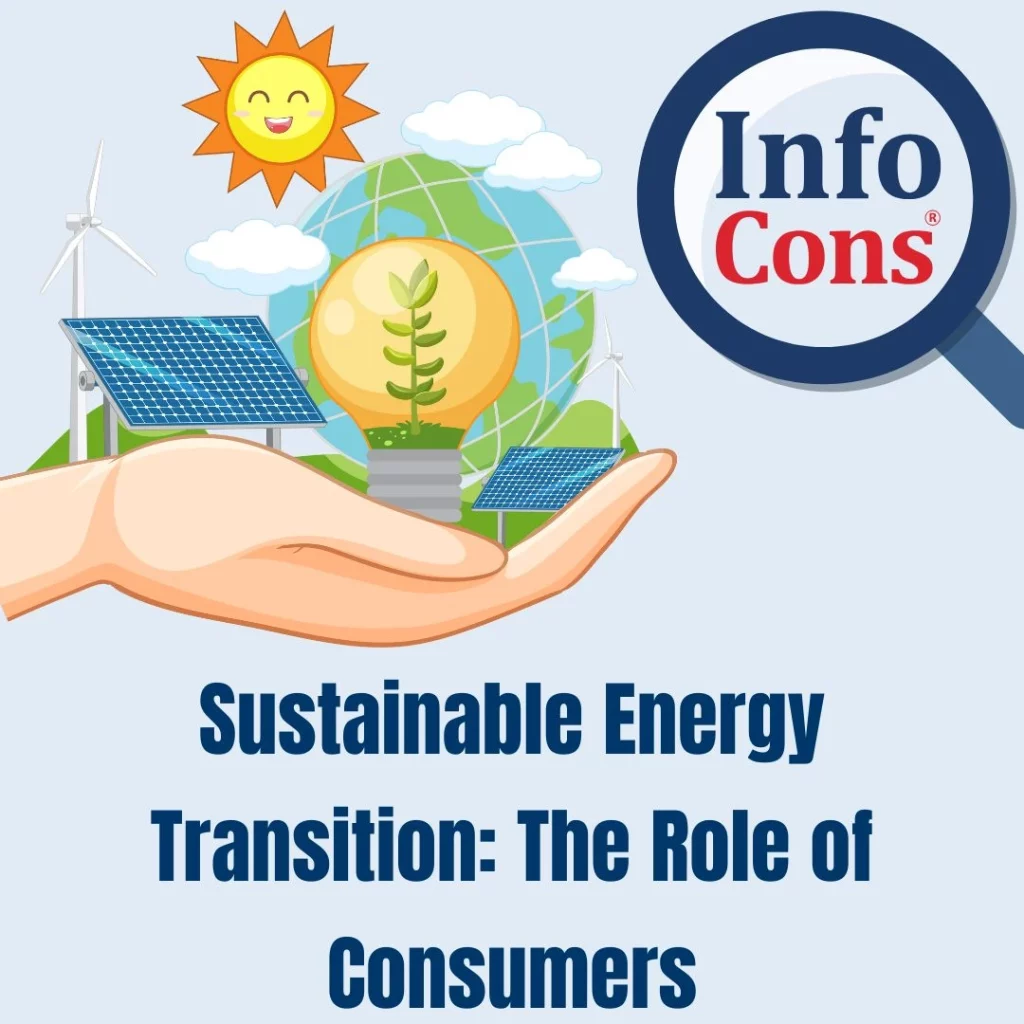
The global shift towards clean energy is not merely a technological or policy-driven endeavor; it is a societal transformation that places consumers at its core. Addressing climate change while ensuring affordable and secure energy access necessitates active consumer engagement. However, numerous obstacles hinder consumers from fully embracing sustainable energy solutions. Rising energy costs, driven by fossil fuel dependence and geopolitical tensions, underscore the urgency for transitioning to cleaner alternatives.
The Consumer-Centric Energy Transition: Why It Matters
A sustainable energy transition is unattainable without active consumer participation. Key elements of this transformation—electrification, digitalization, efficiency, and decentralization—demand individual consumer engagement and investment.
Consumer-driven initiatives such as self-generation, energy communities, and demand-response programs are instrumental in shaping a decentralized clean energy system. Beyond environmental advantages, a consumer-focused transition offers substantial economic benefits, including reduced energy costs, improved home comfort, better air quality, and enhanced system resilience. In several analyzed countries, transitioning to electricity for heating, cooling, and cooking, combined with local renewable energy generation, could result in cost savings of 40–60% compared to fossil fuel-based alternatives.
Read also : Preventive Care in the EU – Which Countries Invest the Most ?
Overcoming Barriers: Consumer Protection and Empowerment
While the advantages of clean energy are evident, multiple barriers impede widespread adoption. Strengthening consumer protection and empowering individuals with better choices can accelerate progress. A consumer journey approach helps identify key intervention points:
Pre-Purchase: Enhancing Awareness and Market Access
- Improving Information and Transparency: Consumers require clear, reliable, and accessible information on energy solutions. Enhancing labeling, awareness campaigns, and pricing transparency can foster informed decision-making. For instance, the GreEnCommerce initiative emphasizes the need for reliable sustainability information, noting that ambiguous or misleading claims can erode consumer trust and hinder sustainable product adoption.
- Ensuring Data Privacy and Security: As digital solutions become integral to energy management, robust regulations must protect consumer data and ensure system reliability.
- Supporting Affordable Clean Energy Options: Governments and businesses should shift incentives from polluting solutions (e.g., gas boilers) to cleaner alternatives (e.g., heat pumps). Financial mechanisms such as “pay-as-you-go” models and low-interest loans can make sustainable options more accessible.
- Developing New Business Models: Innovative approaches, including energy-sharing communities and decentralized grids, can offer consumers greater control and cost savings.
Purchase: Simplifying Adoption and Investment
- Reducing Administrative Hurdles: Lengthy permitting processes and bureaucratic barriers can deter investment in clean energy solutions. Streamlining approvals can facilitate adoption.
- Expanding Financing Options: Accessible, low-cost financing options are essential for consumers, especially those with limited financial resources, to invest in energy-efficient technologies.
Read also : How 3 EU Countries Account for 81% of Jewellery Production
Post-Purchase: Ensuring Effective Use and Maintenance
- Consumer Education and Digital Literacy: Users must be equipped with the knowledge to operate new technologies effectively. Simplified interfaces and consumer-friendly design can improve usability.
- Reliable Maintenance and Support: Local supply chains for repairs and maintenance should be strengthened to ensure long-term efficiency. Accessible dispute resolution mechanisms are also crucial for consumer confidence.
Policy Recommendations: Strengthening Consumer-Centric Energy Policies
To embed consumer needs into the design and regulation of the energy system, coordinated efforts are required from policymakers, industry leaders, and consumer advocacy groups. Key recommendations include:
- Harmonizing Energy and Consumer Policies: National and international collaboration is needed to align regulatory frameworks with consumer priorities. Establishing forums that integrate diverse stakeholders can drive better policy decisions.
- Promoting Market Models That Protect Consumers: Initiatives such as “one-stop shops” for energy advice can help consumers navigate the transition effectively.
- Tracking Progress Through Consumer-Focused Metrics: Metrics should measure affordable access, consumer savings, and awareness of clean energy solutions to ensure accountability and continuous improvement.
The Path Forward
The transition to clean energy must be designed with consumers at its core. By removing barriers, enhancing consumer protection, and fostering engagement, we can create an energy system that is not only sustainable but also inclusive and economically beneficial. This paper serves as an invitation for stakeholders to collaborate in building a consumer-driven roadmap for the clean energy future. The opportunity to act is now—through collective effort, we can empower consumers to lead the way toward a sustainable and equitable energy transition.
Read also : Protecting Yourself from Recovery Scams : A Guide for Fraud Victims
Additional Insights:
The journey towards a sustainable energy future is multifaceted, involving various stakeholders and complex dynamics. Consumers play a pivotal role, but their empowerment requires systemic changes across multiple levels.
The Role of Digital Platforms in Sustainable Consumption
Digital platforms have transformed consumer behavior, offering convenience and a plethora of choices. However, this digital shift also presents challenges in promoting sustainable consumption. The GreEnCommerce initiative by Consumers International highlights that while consumers are willing to adopt sustainable practices, a lack of clear and reliable information often hinders their efforts. The initiative emphasizes the need for e-commerce actors to deliver information in innovative ways that educate and motivate consumers, supporting sustainable choice-making at scale while building trust.
Building Trust Through Transparency
Trust is a cornerstone of consumer engagement in sustainable practices. A study highlighted by TriplePundit reveals that consumers often express skepticism toward businesses’ claims of sustainability, with only 15% expressing complete trust in such claims. Building trust is essential for businesses looking to engage consumers in sustainable.
Source : Consumers International
InfoCons – European Organization for Consumer Protection and Promotion of Programs and Strategies , a full member of the World Organization Consumers International, founding member of the Federation of Consumer Associations, and member of ANEC .